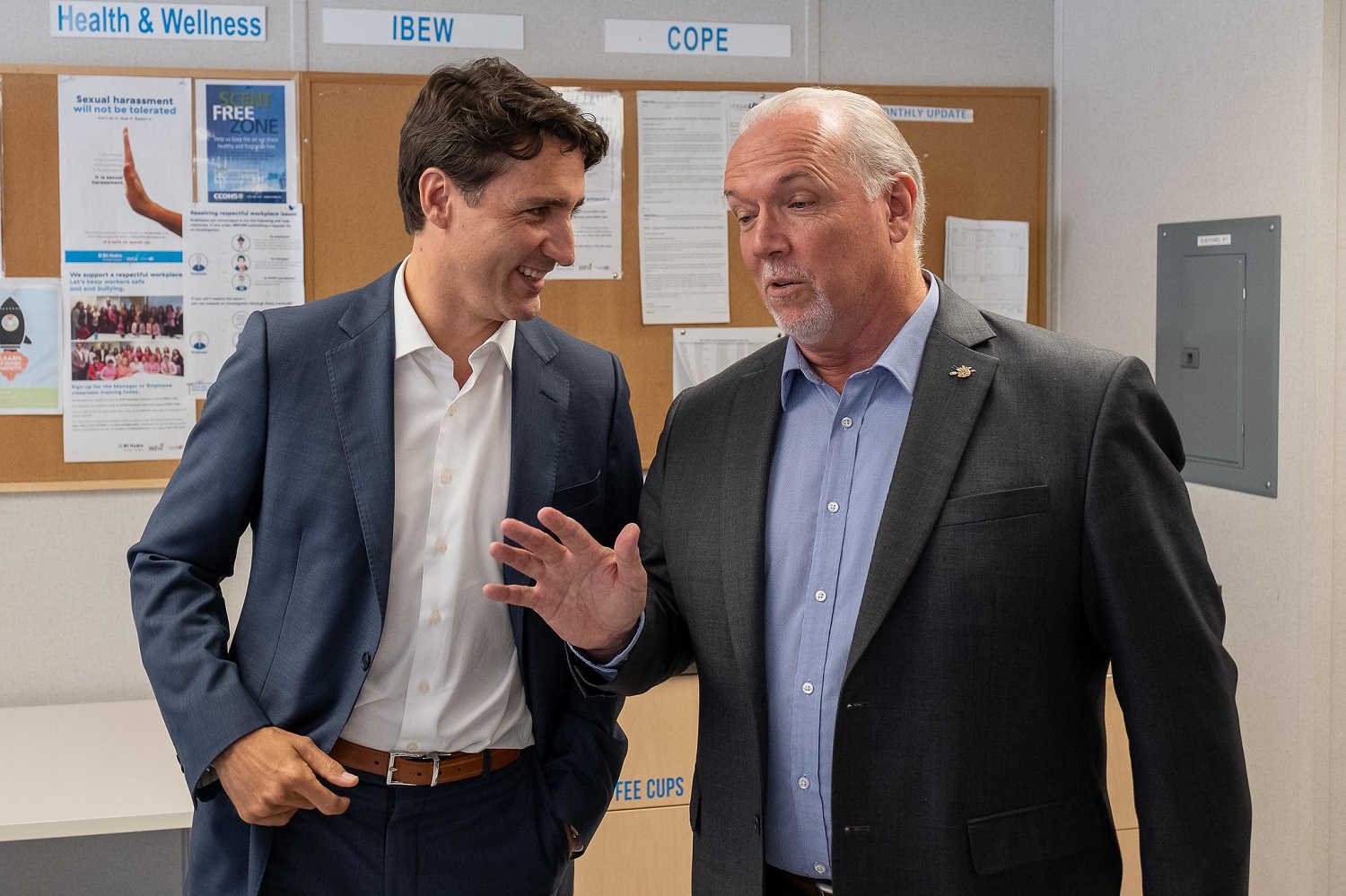The world’s leading authority on climate change came out with some bad news Monday: there’s no avoiding catastrophic climate change, just ways to try and minimize the impacts of it.
The United Nations Intergovernmental Panel on Climate Change’s sixth report might sound bleak, but critics hailed it as the most clear, authoritative report to date on the need to divest from fossil fuels and transition towards a renewable energy future.
It warns that global temperatures are likely, if not certain, to rise above 1.5 C from pre-industrial levels within this decade, blowing past the target set as an international benchmark.
That’s critical, said Anjali Appadurai, climate justice lead with Sierra Club BC. “Anything above that is devastating for the most vulnerable populations around the world, particularly developing countries, coastal communities, Indigenous and rural communities,” she said Monday.
The planet has already warmed by 1.2 C and British Columbia is feeling the impacts, from heat domes to devastating forest fires, from droughts to sea level rise.
The report says fossil fuel use is, beyond a doubt, behind climate change. The good news is if we know what’s causing the climate crisis, we know what we need to do to fix it.
In B.C., that means policy-makers need to end fossil fuel subsidies, halt fossil fuel expansion and end old-growth logging, experts say.
And we need a new provincial climate plan — Clean BC, introduced in 2018 is already painfully outdated, critics say.
“This is a code red for humanity,” said Tzeporah Berman, international program director for Stand.earth. “The laws and policies we brought in through Clean BC are nowhere near enough now.”
But how that “code red” will be translated into public policy remains to be seen. Premier John Horgan and Environment Minister George Heyman have yet to provide any indication of the province’s response to the IPCC report. Horgan and Heyman did acknowledge the report on Twitter.
Asked if B.C. will update its policies around fossil fuel-intensive industries, like natural gas or logging, after hearing the IPCC’s report, the Ministry of Environment sent The Tyee an emailed statement pointing to its previous climate commitments under Clean BC.
Berman said the Clean BC plan has “good bones,” but it needs to be stronger and better funded. B.C. spends twice as much on fossil fuel subsidies than it does on Clean BC, she said.
The province should follow climate economist Nicholas Stern’s advice and spend at least two per cent of the provincial GDP on climate change, she said. According to her calculations, that would bring in $5 billion to fight climate change.
A climate plan should also include laws and policies to stop the expansion of oil and gas in B.C., Berman said.
Karen Tam Wu, regional director at the Pembina Institute, said while many British Columbians might not be paying close attention to a UN report aimed at world leaders, climate change is certainly on the top of everyone’s mind.
Wu said the heat dome, the town of Lytton burning to the ground, wildfire season, and the smoke and heat’s impact on agriculture, aquaculture and tourism have all driven home the impact of global heating.
And that means there are more people asking their politicians what they’re doing to combat climate change, adding pressure for politicians to act, she said.
So, what should politicians be acting on?
First, a moratorium on fossil fuel expansion in B.C., said Sierra Club’s Appadurai. That means scrapping the Canada LNG terminal, walking away from new pipelines and stopping fracking.
The climate emergency should be treated with the same urgency as the COVID-19 pandemic, when the government shut down industries to keep people safe and created financial safety nets for the people impacted by those closures, she said.
Marc Lee, senior economist for the Canadian Centre for Policy Alternatives B.C. office, said current projections from the Canadas Energy Regulator see oil and gas production increasing by 20 per cent by 2040.
That’s despite that the International Energy Agency, the world-leading authority on energy use, said there should be no new further fossil fuel expansion after the end of the year.
British Columbians, and all Canadians, need to have a conversation about rapidly winding down fossil fuel production, said Lee. Current emission reduction targets are “inadequate in terms of having a habitable planet,” he said.
Lee said it’s important to remember that when Canada reports its carbon emissions, it fails to count emissions produced when fossil fuels are exported and burned in other countries. The real impact is double the official numbers, he said.
Next, Appadurai said B.C. should stop subsidizing fossil fuel companies. Lee also opposes fossil fuel subsidies.
A recent analysis by Stand.earth found the BC NDP spent $1.3 billion on fossil fuel subsidies in the 2020-2021 year alone.
That money would be better spent on workers, communities and families who will be impacted as the country transitions away from fossil fuels, said Stand.earth’s Berman.
None of the experts said they expected the B.C. government to take drastic action following this report, mostly due to a lack of political will.
Sierra Club BC’s Appadurai said there’s a huge gap between what the IPCC report calls for and what our governments, both federally and provincially, are prepared to do.
“For me, that takes us to a place of delusion where we’re not listening to the science and we’re continuing on with business as usual in a way that’s extremely irresponsible,” she said.
For Torrance Coste, Wilderness Committee national campaign director, the government’s response to the report signals it knows its climate plans are weak.
When Coste spoke with The Tyee, the IPCC report had been published for over 12 hours. That should have been more than enough time for government staff to brief their ministers and MLAs to make public statements and commitments.
Instead, the NDP government has had little of substance to say on the report.
“If B.C.’s climate policy was something to be proud of, something that was in line with what this report necessitates, they would have,” Coste said.
This report comes as B.C. is under a state of emergency due to wildfires. It comes a week after the BC Coroners Service confirmed this summer’s heat waves have killed 569 people. It comes as most of the province is blanketed in thick wildfire smoke, and as the province ramps up for yet another heat wave this week as temperatures creep back to the low 30s.
Coste said any of those events should have been enough for an immediate government response and a commitment to overhaul B.C.’s climate policy.
Almost all experts said the IPCC’s report should also impact policies around B.C.’s forest industry.
Old-growth forests are the most sophisticated technology we have in combating climate change, Appadurai said. Forests store carbon, clean the air and water and make ecosystems resilient to climate change, she said. ![]()
Read more: BC Politics, Environment
















Tyee Commenting Guidelines
Comments that violate guidelines risk being deleted, and violations may result in a temporary or permanent user ban. Maintain the spirit of good conversation to stay in the discussion.
*Please note The Tyee is not a forum for spreading misinformation about COVID-19, denying its existence or minimizing its risk to public health.
Do:
Do not: